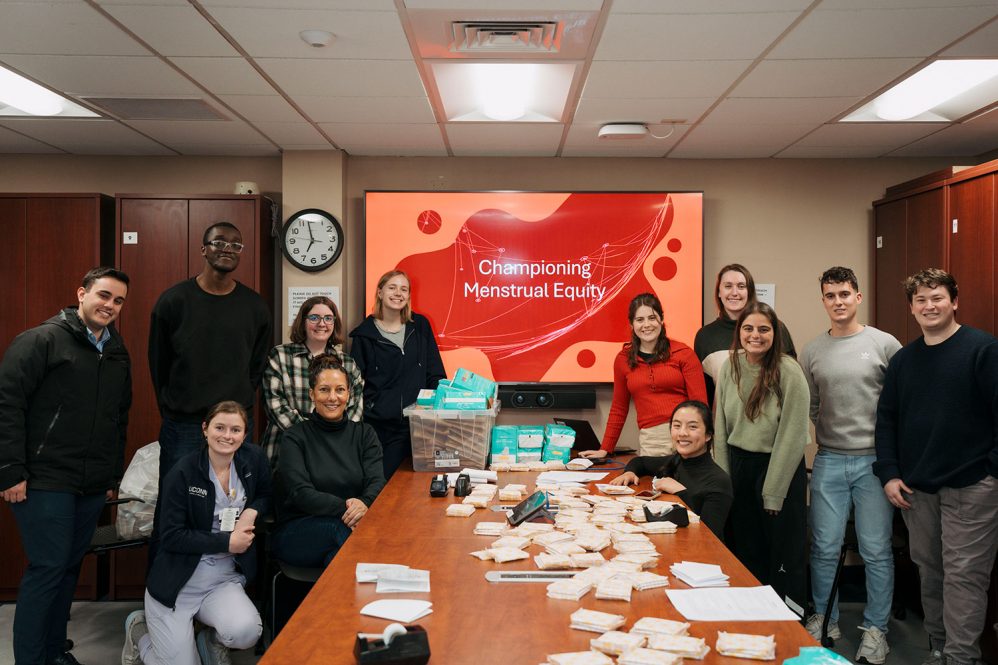Students in the UConn Health Graduate School and the UConn Schools of Medicine and Dental Medicine are leading an effort to address and raise awareness of period poverty.
Over the last several months, they have acquired menstrual products and distributed enough of them to Hartford public schools and Hartford-area Boys and Girls Clubs to meet the needs of more than 600 students.
It’s a joint effort of the graduate school’s Program of Applied Public Health Sciences and a group within the medical school known as Hartford Health Education.
“As a public health student who recognized the inequities in access to products based on socioeconomic status and gender inequities, I really wanted to address this issue and be involved in direct product distribution because so many people lack necessary materials to address their health,” says Juilia Prescott, who, as a public health graduate assistant, has been one of the student leaders of this initiative.

“Period poverty is about a lack of access to menstrual products and resources to manage menstruation, and this is a significant public health problem because a lot of people aren’t able to afford them, and then miss school, and have certain health problems,” Prescott, who just graduated with her Master of Public Health, says. “So, to address that need, we decided we wanted to ramp up this donation drive, and so we solicited products from people all over UConn Health, and we also applied for a grant from The Pad Project, which is a global nonprofit that expands access to menstrual products, combats period stigma, and champions menstrual equity for all.”
They secured a $3,000 Pad for Schools grant, enabling them to purchase additional pads and tampons. Student volunteers get together to package the products along with educational materials for the students and deliver them to the schools and clubs.
“During our health education class about puberty, UConn medical and dental student volunteers distribute these products as well as give tutorials for proper use,” says fourth-year medical student Kelly Anne Kiremidjian, who, with classmate Helen Liu Bian, leads Hartford Health Education.
Kiremidjian says the effort has been well received.
“I have personally been told how needed this initiative is,” she says. “One nurse we spoke to said that she was previously paying for these products out of her own pocket.”
Stacey Brown, associate professor and co-director for the Program in Applied Public Health Sciences, has been mentoring Prescott.
“This initiative reflects the power of student-led public health action,” Brown says. “Thanks to Julia’s incredible leadership, we’ve laid a strong foundation that will continue through the incoming graduate assistant and the dedicated medical and dental student leaders of Hartford Health Education, ensuring that menstrual health equity remains a sustained and growing priority.”
The students have delivered products to the following locations in Hartford:
- Burns Latino Studies Academy
- Annie Fischer STEM Magnet School
- Noah Webster Microsociety Magnet School
- Annie Fischer Montessori
- Global Communications Academy
- Samuel S. Gray, Jr. Boys & Girls Club at Asylum Hill
- Joseph D. Lapenta Northwest Boys & Girls Club
- South End Boys & Girls Club
- Southwest Boys & Girls Club
- Trinity College Boys & Girls Club



